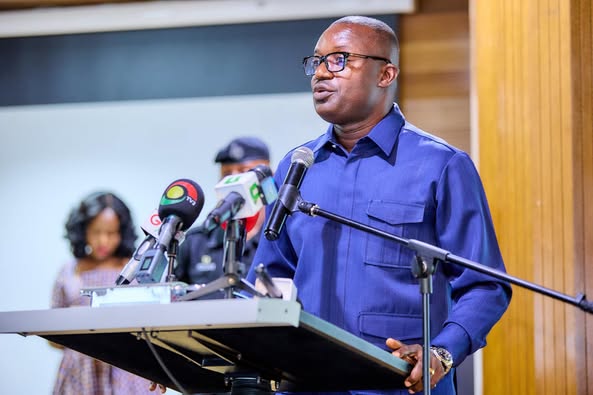The National Petroleum Authority (NPA) has begun broad consultations with industry players in Ghana’s petroleum downstream sector on a proposed new bill that seeks to provide a more comprehensive legal and policy framework for the industry.
The draft legislation, which is expected to replace the current National Petroleum Authority Act (Act 691) enacted in 2005, is part of the government’s efforts to modernize regulation of the petroleum downstream and ensure the sector remains responsive to emerging challenges.
At a stakeholder forum held in Accra on Monday, August 25, the NPA hosted key players in the industry under the auspices of the Ministry of Energy and Green Transition.
The event, which was chaired by the Minister of Energy and Green Transition, Hon. John Abdulai Jinapor, offered participants the opportunity to review the draft NPA bill and provide input to help finalize the legislation before it proceeds to Cabinet and subsequently Parliament.
In his welcome address, the Acting Chief Executive of the NPA, Lawyer Godwin Kudzo Tamaklo, highlighted the urgency for reform, noting that the 2005 Act was no longer sufficient for the realities of the fast-growing and increasingly complex petroleum downstream industry.
He explained that the sector has undergone significant changes over the past two decades, including market expansion, new technological dynamics, and global shifts towards sustainable energy practices.

According to him, “the current NPA Act (Act 691), which was enacted in 2005, does not adequately address the needs and evolving challenges of the fast-growing petroleum downstream.
Lawyer Tamaklo emphasized that the draft bill seeks to create a more predictable, transparent, and efficient regulatory environment, which is essential for protecting consumers, encouraging investment, and promoting sustainability.
Government’s Commitment to Openness
On his part, the Energy and Green Transition Minister, Hon. John Abdulai Jinapor, underscored the government’s commitment to openness in the process of shaping the new bill. He described the forum as an important platform for ensuring inclusiveness in policymaking and for aligning industry concerns with regulatory priorities.
“This stakeholders’ forum demonstrates government’s commitment to transparency, reforms and inclusiveness even as we move towards a more robust and efficient petroleum downstream sector”.
Energy and Green Transition Minister, Hon. John Abdulai Jinapor
He further explained that the government sees the bill not merely as a technical regulatory instrument but as a policy framework that will guide the evolution of the petroleum downstream in ways that support national development, energy security, and the transition to greener alternatives.

Hon. Jinapor assured industry players that their contributions would be carefully considered in finalizing the bill. He disclosed that the draft legislation would soon be laid before Cabinet for approval and subsequently submitted to Parliament for consideration.
He also reiterated the government’s broader goal of building a petroleum sector that is competitive, fair, and aligned with global best practices.
The forum was part of a series of consultative processes intended to give stakeholders an active voice in shaping the future of Ghana’s petroleum downstream.
Industry participants, including representatives of oil marketing companies, bulk distribution firms, transporters, and consumer interest groups, were given the opportunity to make presentations, raise concerns, and suggest recommendations for strengthening the proposed legislation.
Key discussions focused on the need to enhance regulatory efficiency, curb malpractices in pricing and distribution, improve safety standards across the petroleum value chain, and foster a level playing field that supports fair competition.

There were also deliberations on how the bill could incorporate Ghana’s commitments under international energy transition frameworks, including the shift towards cleaner fuels and sustainable practices in the sector.
The process of replacing Act 691 has been on the policy agenda for several years, with calls from civil society and private sector actors urging the government to address loopholes and inefficiencies in the existing law.
Among the concerns frequently cited are the need for stronger mechanisms to enforce compliance, greater clarity on the roles of various actors in the supply chain, and updated provisions to reflect contemporary realities such as digitalization and the push for green energy solutions.
By engaging stakeholders early and openly, the government hopes to build consensus around the draft bill, reduce resistance to reform, and ensure smooth passage once the legislation reaches Parliament.
The Minister reiterated that the ultimate goal is not only to regulate but also to provide a forward-looking policy framework that aligns with Ghana’s aspirations for energy security, economic growth, and environmental sustainability.

The forum ended with a call for continued dialogue and collaboration as the draft bill advances through the final stages of preparation.
Both the NPA and the Ministry of Energy and Green Transition assured stakeholders that more consultations would be held where necessary to ensure that the final bill reflects a balance of interests and positions for Ghana’s petroleum downstream to thrive in an evolving global energy environment.



















